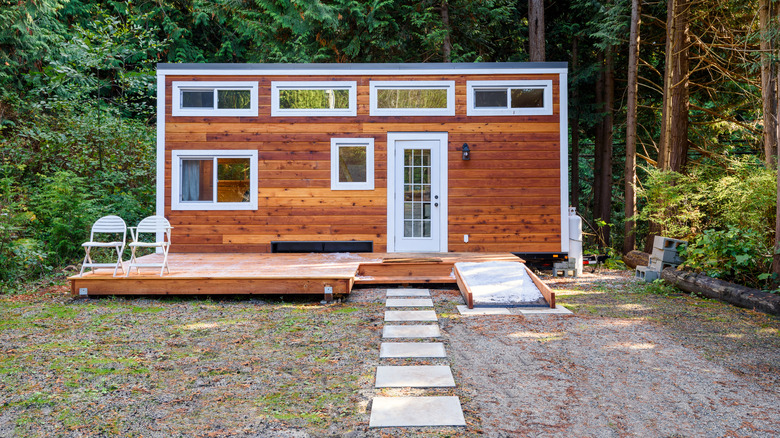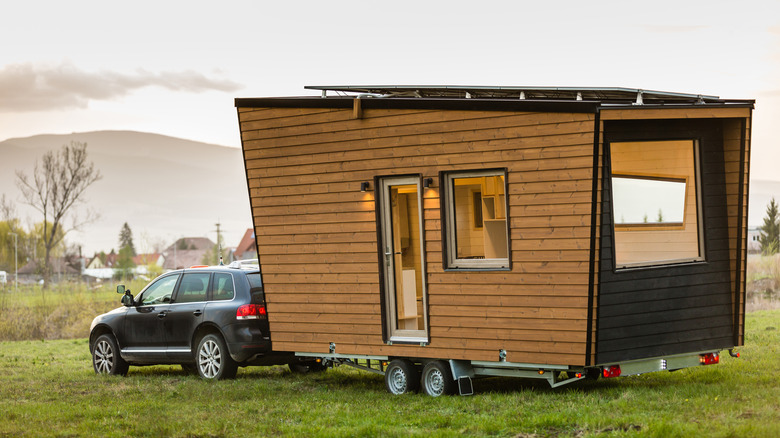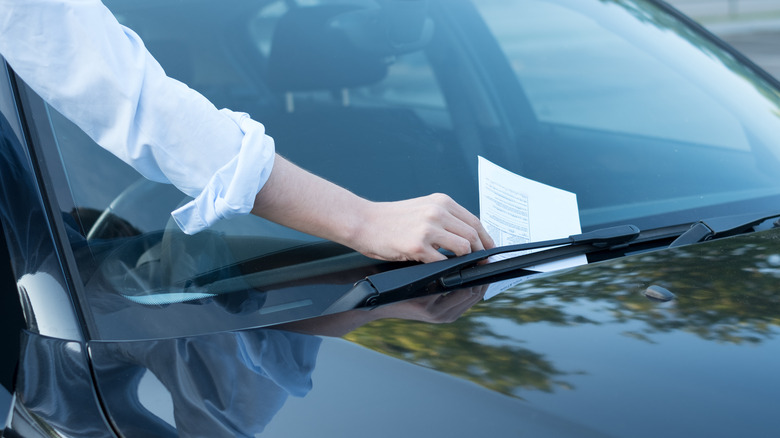Why A Tiny House Doesn't Offer The Mobility You Think It Does
If you're considering making the switch from a single-family home to a tiny house, chances are you're aware of the benefits this living lifestyle brings, such as lower cost of livelihood, energy efficiency, and the ability to travel as you please. According to Lifehack, many homeowners are drawn to tiny living because of the freedom it offers. Owning a tiny home allows you to move around the country without constantly picking up your belongings and relocating to a new house. In addition, you have no roots tying you down to a specific location, which is what makes this feature so alluring.
As with any style of home, tiny houses also have their drawbacks, particularly when it comes to the mobility we mentioned earlier. If you're interested in switching to this living style, you should know a tiny house doesn't offer the mobility you think it does. You should seriously consider this before moving into a tiny home, and here are a few reasons.
You need additional equipment to move
Moving your tiny home to a new area seems easy, right? Unfortunately, the process requires more equipment than you think. First and foremost, you'll need a trailer hitch to be able to actually move your tiny house. Unless your home is already on wheels, you'll need to purchase a trailer hitch to transport it to your new location. Secondly, if you don't own a truck, you'll need to buy or rent one, as hitching your tiny home to a small car is not practical or safe, The Tiny House says.
If you don't feel safe towing your tiny home yourself (and you don't want to spend $30,000 to $50,000 on your own truck), you could always hire a professional to do it for you. According to Tiny House Bloom, a professional towing service averages about $70 to $80 a day, plus additional gas fees. Keep in mind that if you plan on relocating somewhere several states away, it will cost you a pretty penny.
Hefty parking fees
Parking your tiny house doesn't come for free. Whether staying one night or one month, you'll have to pay a parking fee, which allows you to stay in that spot without consequence (think of it as rent for your tiny home). Depending on where you're looking to park your tiny house, it will cost you between $300 to $800 monthly, says Ridingtiny, but before you even start thinking about rent, you'll have to make sure you can legally station in your desired spot. To do so, look online for legal parking areas to ensure you aren't breaking the law.
If you aren't 100% sure your parking space is legal, it's best you find another spot to set up your tiny home. If you aren't careful, you're going to end up spending a ton of money on parking tickets (and, worst case, you risk having your car booted or towed).


